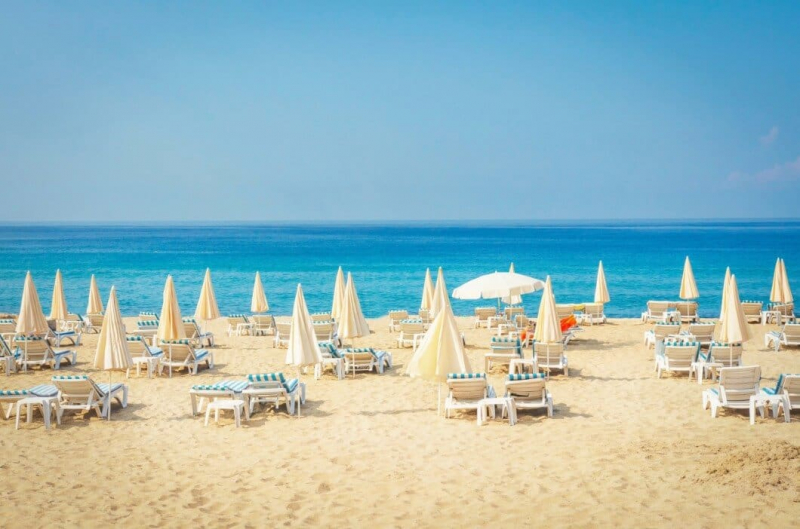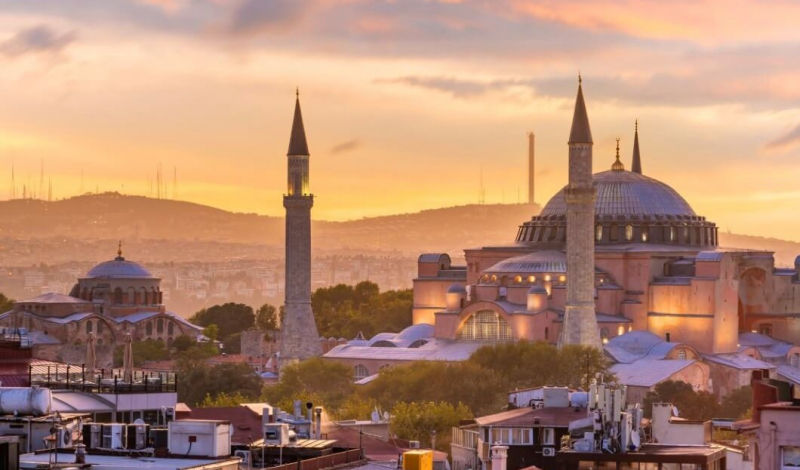Turkey, a long-time favorite for vacationers seeking both sunshine and culture, is currently struggling with a dip in tourism. It seems rising costs are pushing people to either shorten their holidays or choose other countries altogether.
While certain markets are still showing interest, a 5% drop in visitors during July 2025, along with serious inflation and a stronger Turkish lira, suggests that the tourism sector here may have reached a critical point. As tourists from Germany and the UK consider alternatives, Turkey’s tourism and hospitality businesses are facing a tough challenge to stay appealing.
The Price Pain Threshold
Travelers are increasingly cutting their Turkish trips short, sometimes by just a day, to keep within budget due to escalating expenses. Experts mention that although visitors express a real fondness for Turkey’s beaches, historical landmarks, and lively culture, many just can’t stretch to longer visits these days. Inflation, reportedly at 33.5% in 2025, has bumped up prices for everything from hotels to food and activities, outpacing wage growth in important visitor markets. The rising value of the Turkish lira has also made things worse, making Turkey seem less of a bargain compared to places like Greece or perhaps even Albania.
To illustrate, a family of four might now pay $150–$200 a night for a decent Antalya resort, up quite a bit from the $100–$130 range back in 2023, according to some industry insiders. “People truly love Turkey, but the prices are really starting to push them away,” said one hotel manager in Bodrum, a sentiment common across the hospitality field. This has noticeably changed travel habits, with people now favoring shorter, more economical trips over longer, more leisurely breaks.
High Demand Amid Declining Numbers
Despite these problems, Turkish hotels have been remarkably full for much of the summer, mainly thanks to consistent demand from Russia and other Russian-speaking nations. These markets, possibly less affected by the higher prices due to differences in exchange rates, have been key in keeping resorts in Antalya, Bodrum, and Marmaris busy. Still, this reliance on particular markets also highlights a certain fragility: the absence of the usual Western European visitors, especially from Germany and the UK, has created a noticeable void.
July 2025—normally a busy month—actually saw a 5% decrease in overall visitor numbers compared to the year before, according to data from Turkey’s Tourism Ministry. German arrivals were down by 8%, and British visitors dropped by 10%, as many opted for cheaper destinations, such as Spain. The increased value of the Turkish lira, along with inflation, hasn’t just hurt tourism; it’s also affected the broader export sector, which depends on having competitive prices.
Click here to preview your posts with PRO themes ››

Economic and Competitive Pressures
Turkey’s tourism industry, which accounts for about 12% of the country’s GDP, is currently feeling the impact of an estimated $3 billion decrease in projected revenue for 2025, according to the Turkish Travel Agencies Association. The decline in German and British tourists—typically big spenders—has been especially tough on coastal areas. In Antalya, hotel operators report a roughly 15% fall in European bookings, while famous cultural sites in Istanbul are experiencing fewer Western visitors. The resulting economic effects are clear, with local businesses, including restaurants and tour companies, reporting lower earnings.
Adding to the problem is competition from other Mediterranean spots. Greece, with its relatively stable euro-based pricing, and Albania, made more accessible by budget airlines, offer better value for money to Europeans watching their wallets. “Turkey used to be the go-to for affordability, but it’s starting to price itself out,” a German travel agent pointed out, emphasizing the need for some strategic adjustments.
Adapting to Changing Habits
The Turkish hotel sector is making efforts to adapt to these shifts by focusing on resilient markets and improving what they offer. Resorts are putting together all-inclusive deals designed specifically for Russian tourists, including menus in Cyrillic and Russian-language entertainment, to keep occupancy rates high. Some hotels are also trying out dynamic pricing strategies to draw in travelers who are especially sensitive to price changes during certain periods. Turkey’s Ministry of Tourism has been actively trying to promote the country as a destination that’s great any time of year, not just during the peak season. They’re really highlighting cultural hotspots like Cappadocia and Ephesus, hoping to draw in folks for more than just the beaches.
To keep up with what travelers want these days, there’s also been a focus on sustainable tourism – things like eco-friendly resorts and cutting down on waste. These are good steps, but honestly, they might not be enough if we don’t get a handle on issues like inflation and the value of the currency. Without tackling these economic hurdles, these efforts might not fully pay off.


